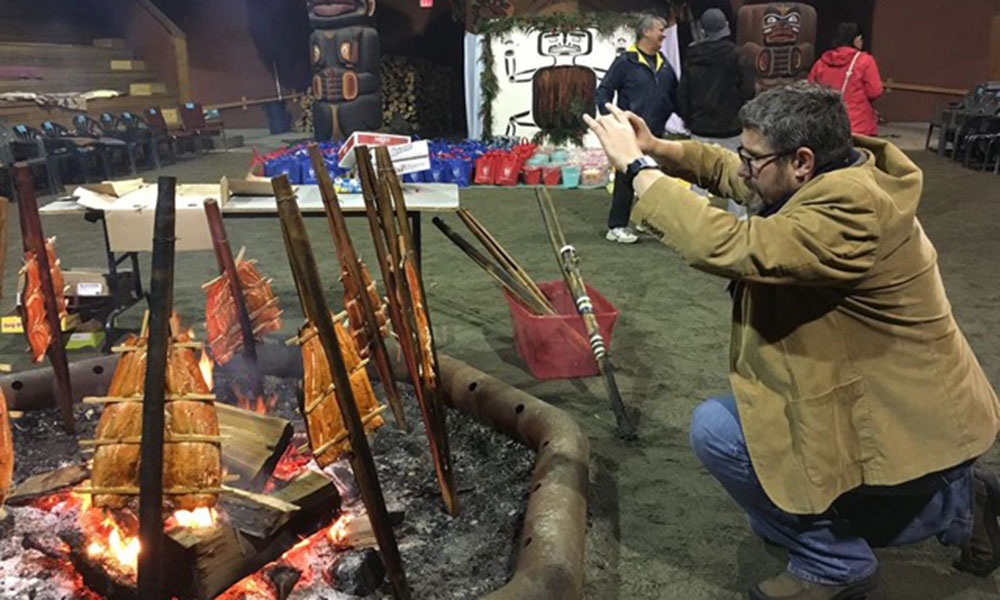Faculty Profile, People
Geography prof Jon Corbett drives social transformation by amplifying the voices of secluded populations
February 9, 2016

About
Name
Jon Corbett
Role
Associate Professor
Program
Geography
Faculty
Irving K. Barber School of Arts and Sciences
Campus
Okanagan (Kelowna, BC)
Education
PhD Cartography, PGIS. Multimedia mapping, University of Victoria (2002)
MSc, Forestry, University of Oxford, (1995)
Hometown
London, England
“I feel very privileged to work at a top-recognized university.”
DURING THE LAST NINE YEARS, Associate Professor Jon Corbett has seen firsthand the remarkable growth of UBC’s Okanagan campus.
“It is so incredible to see how UBC Okanagan has developed over the years. We have access to resources offered by UBC, but we get to enjoy a smaller and more intimate campus. I feel very privileged to work at a top-recognized university,” he says.
Corbett credits the high level of support from the institution for his success as a researcher and educator. “UBC Okanagan has facilitated my work. If I did not have this space or the resources here to conduct my community-based research, I would not be where I am today.
For example, he says, the Institute for Community Engaged Research, of which he’s co-director, allows undergraduate and graduate students to work on a number of projects. This has led to his research-related involvement with national and international movements. 
FROM FRONTLINE TO ONLINE
Corbett has a passion for working with marginalized populations. During his undergraduate honours thesis, he studied Turkish guest workers in Berlin and currently he works with intellectually disabled individuals and Aboriginal groups in Kelowna, BC.
His research serves as a vehicle to amplify the voices of excluded populations. Through interventions and the use of maps as instruments of communication, Corbett aims to drive social transformation.
In its latest work, Corbett’s research team is using an online map as a storytelling tool to help those with disabilities feel empowered and overcome social exclusion. In addition, they are involved in working with people with intellectual disabilities in mapping their experiences of positive workplace employment.
“We work closely with individuals and their families, as well as employers to find gold standard examples of fair jobs and equal employers. Ultimately, we hope our work can help these individuals get recognized as inspirational leaders.”
MAPPING COMMUNICATION
Corbett facilitates communication by using maps to relay concepts. His research is focused in three main areas:
• Exploring how digital multimedia technologies can be effectively combined with maps and used by remote and marginal communities to document, store, manage and communicate their culture, language, history, and traditional ecological knowledge.
• Examining how geographic representation of community information using digital technologies can strengthen the community internally and externally
• Addressing the process and implementation of sustainable development, particularly in respect to community-based Natural Resource Management.
“All aspects of my research incorporate a core community-based element. Within the context of my research program, this means that the research is of tangible benefit for the communities with whom I work,” he says.
“We would like to these communities to feel a strong sense of ownership over the research process and that community members are engaged and engage in the research endeavour.”